Filament yarn is filament fiber often made of polyester and nylon that tends to be measured in yards, sometimes meters. Being made from manmade fibers, synthetic fiber like Silk, poly, and nylon, filament yarn gets twisted into a yarn. There are multiple ways to count the shiny and smoothy filament yarn which we will be seeing in this article briefly.
Table Of Contents
What is Yarn Count?
Every yarn, be it a staple of filament, has its yarn count. Yarn count refers to the numerical value that indicates how coarse or fine the yarn is. Filament yarn differs greatly compared to short staple fiber. Besides, all these factors, yarn count talks about the yarn’s durability and strength. It also affects the fabric’s price-expensiveness and cheaper ability.
Checking Yarn Count for Filament Yarn
Filament yarn count is measured by a direct count system in which the length of yarn remains constant and, a higher count refers to thicker yarn. The most two common methods to measure filament yarn are Denier and Tex based on the direct count system, which are described below
1. Denier (D)
Here, it represents the weight in grams of 9000 meters of filament yarn. It means that the increase in the denier number causes the yarn to be heavier, thicker, and cheaper. The small denier number reflects the lightness and the costliness of the yarn. Taiwan country has the most common denier specification for polyester-made garments consecutively, 50D, 75D, 100D, and 150D. (1 D= No. of grams per 9000 meters)
Denier per filament: The weight in terms of the grams of 9000 meters of an individual filament gets calculated by involving the yarn denier. After that, the denier gets divided by the filament yarn number.
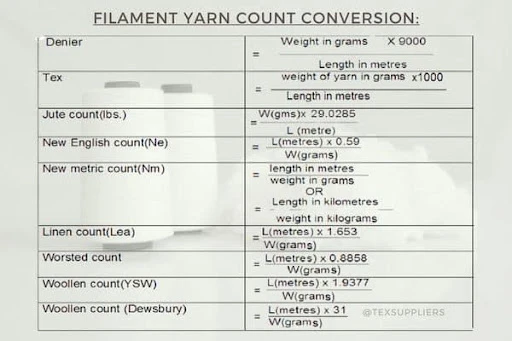
75D/72F Filament Yarn count: What does it mean?
Since filament yarn is composed of filament fibers, figure-75D/72F denotes that the yarn is 75 deniers with the composition of 72 strands of filament fiber.
2. Tex (Microfiber Yarn Count)
If we see that the filament count is greater than the denier, we will measure the count by Tex.
Tex: Tex is utilized to express the continuous filament yarns’ fineness. It represents the weight in grams of 1000 meters of filament yarn.
1 tex = 1 gram = 1000 yarn meters
Is Converting Yarn Count to Denier (Den) Necessary?
It is not necessary to convert yarn count to denier. If we want to customize the fabric to a filament yarn from the staple one, the below yarn count conversion formula will help:
- 5315 / denier = yarn count
- 5315 / yarn count = denier
Conclusion:
The less the denier the finer the yarn count- this is the principle that solely applies to the filament yarn count. If we talk about the 150 deniers (D), we will have a finer yarn count, thinner compared to any other, also, lighter filament yarn. But the less the denier the less the strength. We will find the 150 Denier filament yarn to be less strong.



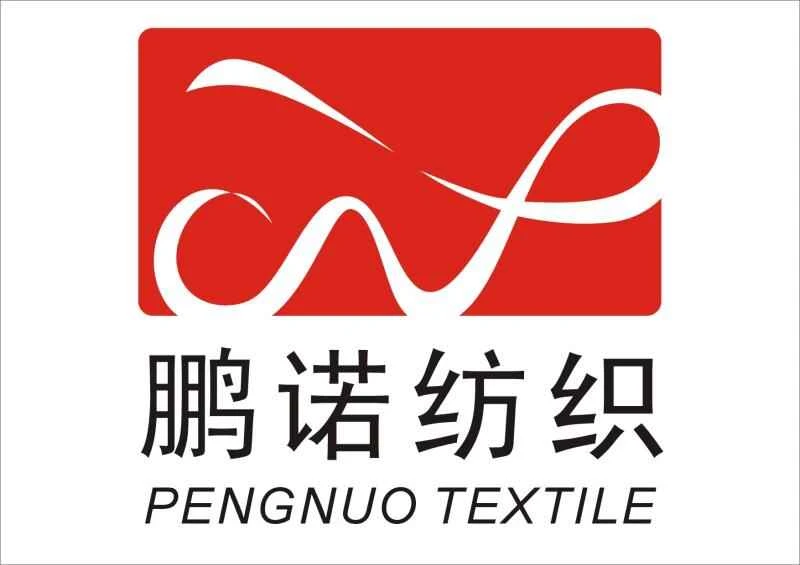

.webp)
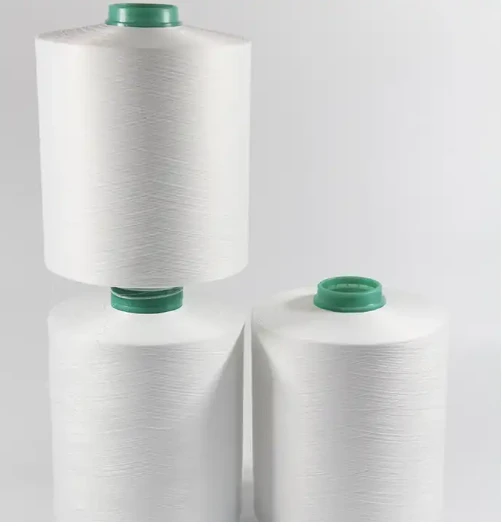
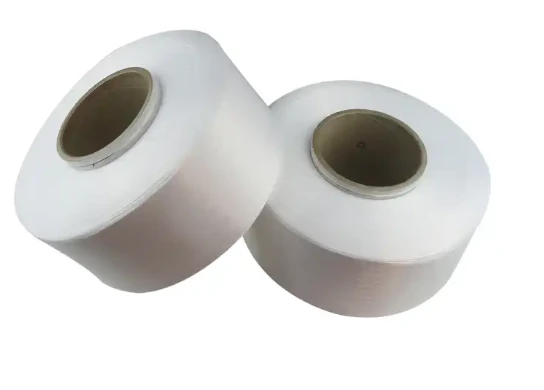
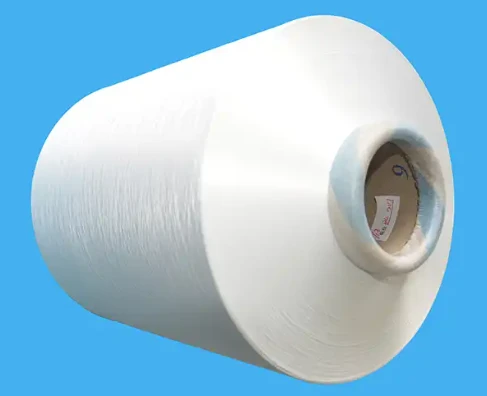
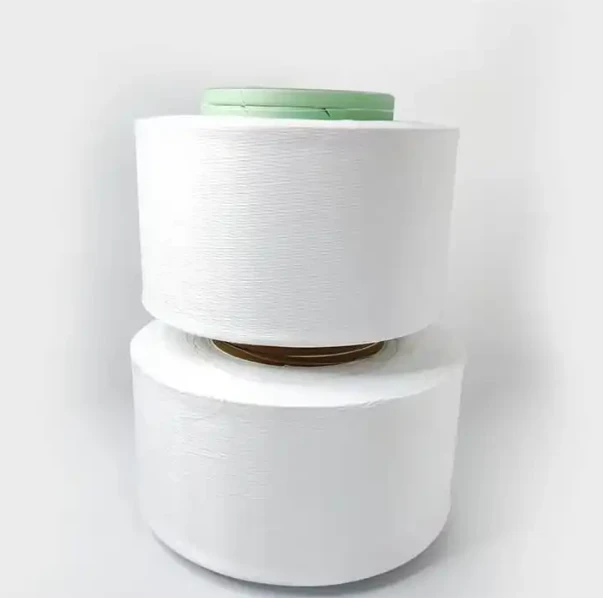
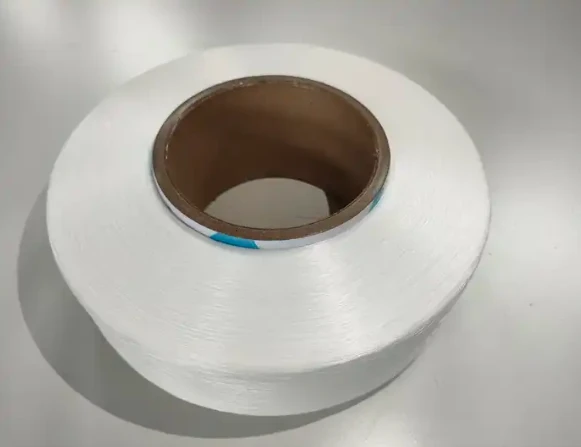
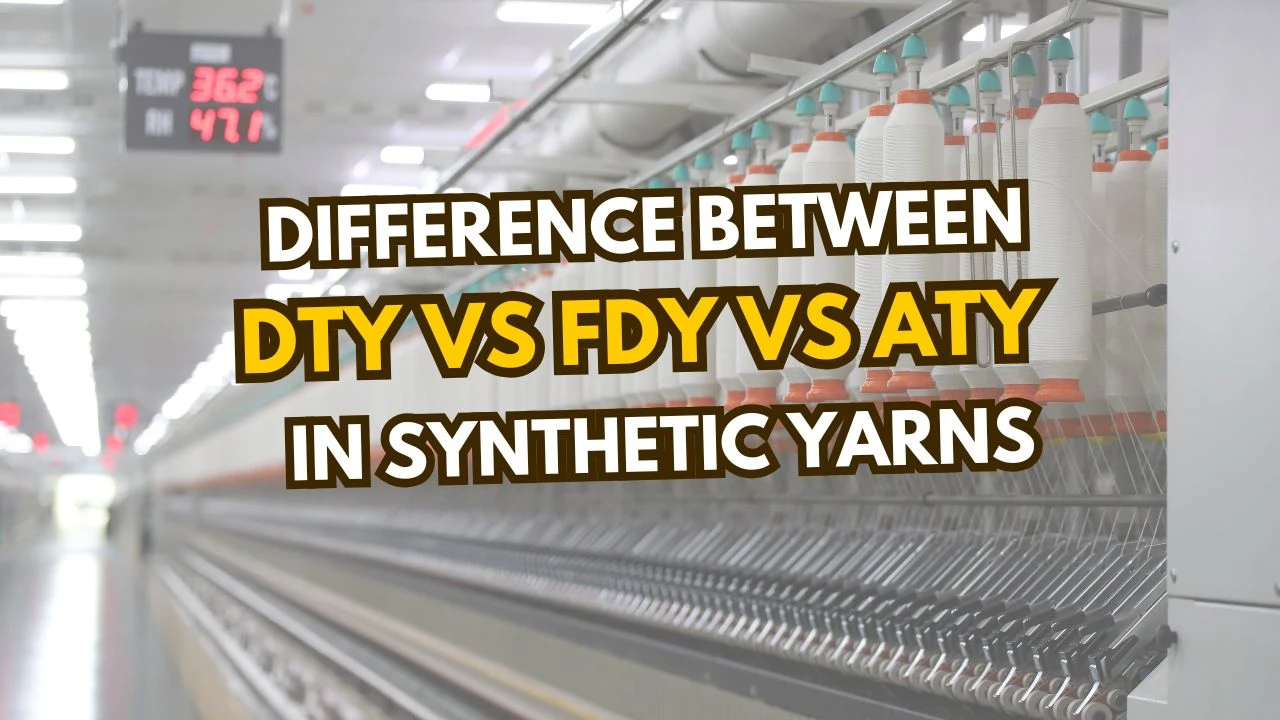

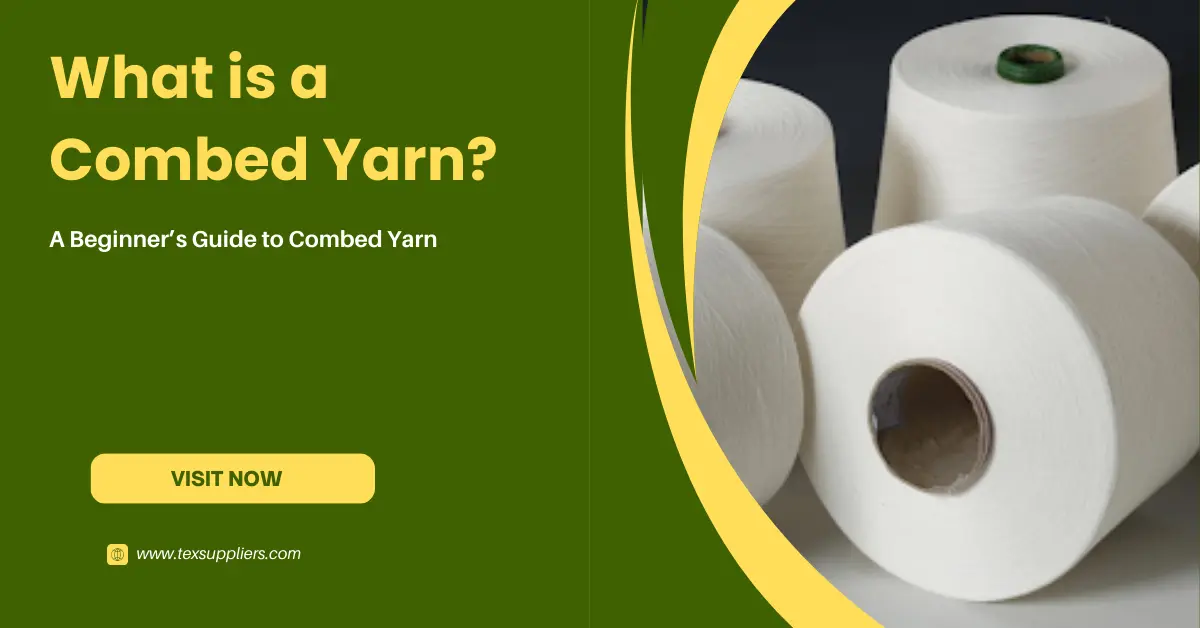


Comments - 00
Leave A Reply
Thanks for choosing to leave a comment.